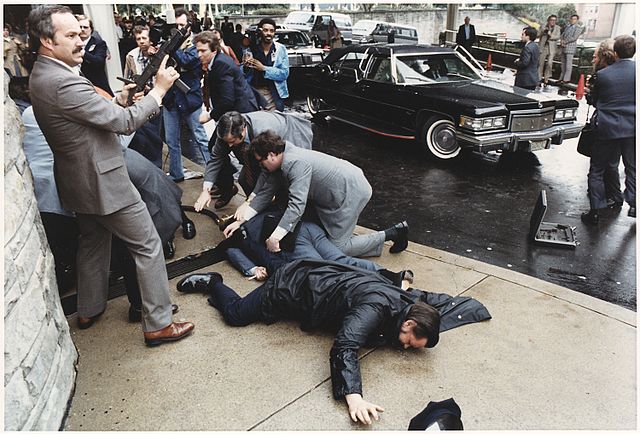1981: Incoming Freshmen’s Attitudes Toward Homosexuality in the Shadow of AIDS

MTV launched on August 1, playing its first video, “Video Killed the Radio Star” (The Buggles) and nine other music videos. The first personal computer—not the first Macintosh—was introduced. In world and national politics, Egyptian president Anwar al-Sadat, who shared the Nobel Peace Prize with Israeli prime minister Menachim Begin for agreeing to the Camp David Accords brokered by Jimmy Carter, was assassinated by Egyptian extremists. Iran agreed to free the U.S. hostages who had been held by Iranian revolutionaries since 1979, but timed their release for moments after Ronald Reagan took office as President of the United States in January 1981. In March, an an assassination attempt seriously wounded Reagan and three others. Reagan later nominated Sandra Day O’Connor as the first female Supreme Court justice.
Also, Acquired Immune Deficiency Syndrome (AIDS) was first identified. The first U.S. cases predominantly occurred among gay men. Unfortunately, this led to “AIDS hysteria” manifesting in rampant homophobia; in fact, some public responses to recent Ebola outbreaks have been compared to reactions in the early days of AIDS. Given the fear-driven attitude directed at AIDS victims across the country, what were first-year college students’ attitudes toward gay rights in 1981? The CIRP Freshman Survey measured one aspect of this by requesting that respondents indicate their level of agreement or disagreement with the statement “It is important to have laws prohibiting homosexual relationships.” A total of 57.6% disagreed either “somewhat” or “strongly,” with 23.5% disagreeing “strongly.” However, 42.4% of respondents agreed either “somewhat” or “strongly,” with 19.4% agreeing “strongly.” It should be noted that the survey did not ask students about their sexual orientation at that time.
Delving into the data by respondents’ self-professed religious preferences yields a range of viewpoints. In 1981 the CIRP data on religious preferences were not as granular as today, so the only religious categories available to examine are “Protestant,” “Roman Catholic,” “Jewish,” “none,” and “other” with a separate question asking if students considered themselves born-again Christians. While many respondents rejected the idea that having laws prohibiting homosexual relationships was important—80% of Jewish respondents, 75.3% of respondents with no religious affiliation, 57.9% of Roman Catholic respondents, and 53% of Protestant respondents disagreed either “strongly” or “somewhat” with the idea—not all did so. Of those students who considered themselves born-again Christians, a total of 59.1% agreed either “strongly” or “somewhat.”
When examined by gender, a slight majority (51.5%) of male students agreed either “strongly” or “somewhat” with the importance of there being laws prohibiting homosexual relationships, compared to only 34.3% of female students. Only 17.9% of male students disagreed “strongly” with the idea, as opposed to 28.6% of female students. Analyzing the data by self-described political affiliation yielded differences as well. For instance, those who characterized their political views as far-right predominantly agreed that it was important to have laws prohibiting homosexual activities; 57.7% agreed either “somewhat” or “strongly” with the idea. Of those, 38.4% agreed “strongly.” Of those who characterized their political views as conservative, 50.9% agreed either “somewhat” or “strongly” with the idea; of those, 26.1% agreed “strongly.” However, even some first-year students on the other side of the political spectrum agreed with the importance of laws prohibiting homosexual activities. A total of 30.8% of students identifying as politically liberal agreed either “somewhat” or “strongly” with the idea, with 14.2% agreeing “strongly.”
The mixed data presented here bear witness to students’ conflicting attitudes toward at least one aspect of gay rights in 1981. However, over the decades the CIRP Freshman Survey has moved from asking about laws prohibiting same-sex relationships to not only asking students their sexual orientation, but soliciting their opinion on views such as “Same-sex couples should have the right to legal marital status” (2015) and “Gays and lesbians should have the right to adopt a child” (2013); in 2013, 83.3% of incoming freshmen supported this right.
Did you know?: 64.2% of incoming freshmen respondents in 1981 agreed “strongly” that “College graduates should be able to demonstrate some minimal competency in written English and mathematics.”
76.7% of incoming freshmen in 1981 disagreed either “somewhat” or “strongly” with “College officials have the right to ban persons with extreme views from speaking on campus.”
